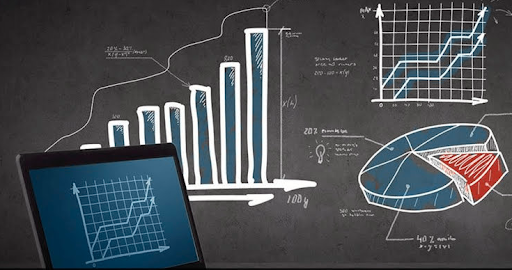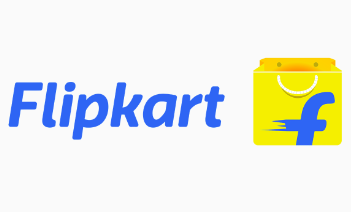Event Tracking
Definition
Event tracking refers to monitoring and measuring user interactions or actions on a website or application.
Description
Website owners and marketers must understand how users interact with their websites or applications.
By monitoring and measuring user actions, such as clicks, downloads, and form submissions, they can identify areas for improvement, optimise user experience, and achieve their business goals.

The interactions include clicking a button, submitting a form, downloading a file, watching a video, or any other meaningful action for tracking user engagement and behaviour.
Event tracking typically involves adding search code or tags to the website or application, which allows analytics software to collect data on user behaviour and generate reports on the frequency, duration, and other metrics related to the tracked events.
Event tracking is a critical component of web analytics. It helps website owners and marketers gain insights into user behaviour and optimise their websites or applications to improve user experience and achieve their business goals.
Event tracking can help website owners identify which pages or features are most popular, which conversion points are working effectively, and which areas need improvement.
This information can be used to make data-driven decisions and improve the website or application design, content, and marketing strategies.
Importance of Event Tracking
Event tracking is essential for several reasons:
- Understanding user behaviour: Event tracking allows website owners and marketers to monitor and measure how users interact with their websites or applications. This information provides valuable insights into user behaviour, preferences, and needs, which can be used to optimise the user experience and improve the website or application design.
- Measuring performance: By tracking key events such as clicks, downloads, and form submissions, website owners can measure the effectiveness of their marketing campaigns and conversion funnels. This information can be used to identify areas for improvement and optimise a website or application’s performance.
- Improving user experience: By analysing event tracking data, website owners can identify areas where users are experiencing problems or frustrations and take steps to address these issues. This can lead to improved user satisfaction and loyalty.
- Making data-driven decisions: Event tracking provides website owners and marketers with valuable data that can be used to make informed, data-driven decisions about the website or application design, content, and marketing strategies.
How to track events on a website?
To track events on a website or application, you can follow these general steps:
- Define the events you want to track: Start by identifying the actions or interactions on your website or application that are important to follow. For example, you can track clicks on specific buttons or links, form submissions, video views, or downloads.
- Choose an event tracking tool: There are several event tracking tools available, such as Google Analytics, Mixpanel, and Heap Analytics. Choose the tool that best suits your needs and integrate it with your website or application.
- Set up event tracking code: Once you have selected your event tracking tool, you must set up a tracking code on your website or application. This code typically involves adding a JavaScript snippet to your web pages to send data to your event tracking tool when users perform the desired actions.
- Test and validate tracking: After setting up the tracking code, ensure that events are tracked correctly. Use your event tracking tool’s reporting features to confirm that events are being recorded as expected.
- Analyse event tracking data: Once events are being tracked correctly, use your event tracking tool’s reporting features to analyse the data and gain insights into user behaviour and website performance. Use these insights to optimise your website or application and improve the user experience.
Future Strategies for Event Tracking
The future of event tracking will likely involve several strategies that will continue to enhance the capabilities of web analytics tools and provide deeper insights into user behaviour. Here are some potential future strategy for event tracking:
- Tracking user engagement with dynamic content: As websites and applications become more dynamic and personalised, event-tracking tools must adapt to capture user engagement with these elements. This may involve tracking interactions with dynamic content such as customised recommendations, live chat, or real-time updates.
- Integrating machine learning and AI: Machine learning and AI can be used to analyse event tracking data and identify patterns and insights that may not be immediately apparent. For example, AI could automatically segment users based on their behaviour or predict which users will most likely convert.
- Cross-device tracking: With users accessing websites and applications from multiple devices, event-tracking tools will need to be able to track user behaviour across devices. This will require more advanced tracking methods connecting user activity across devices and platforms.
- Tracking privacy-compliant data: With the increasing focus on user privacy, event tracking tools must adapt to comply with new regulations such as GDPR and CCPA. This may involve using privacy-focused tracking methods such as differential privacy or giving users more control over their data.
- Integrating offline and online data: To provide a more complete picture of user behaviour, event tracking tools must incorporate data from both online and offline sources. This could involve tracking user interactions in physical stores or events or integrating data from CRM systems or other offline sources.
Benefits of Event Tracking
Event tracking provides several benefits, including:
- Insights into user behaviour: Event tracking allows website owners and marketers to gain insights into how users interact with their websites or applications. By monitoring and measuring user actions such as clicks, downloads, and form submissions, they can identify areas for improvement and optimise the user experience.
- Improved website performance: By tracking key events such as clicks and conversions, website owners can measure the effectiveness of their marketing campaigns and conversion funnels. This information can be used to identify areas for improvement and optimise website performance.
- Better decision-making: Event tracking provides website owners and marketers with valuable data that can be used to make informed, data-driven decisions about the website or application design, content, and marketing strategies. This can lead to better results and improved ROI.
- Increased user engagement: By analysing event tracking data, website owners can identify areas where users are experiencing problems or frustrations and take steps to address these issues. This can lead to improved user satisfaction and engagement.
Competitive advantage: By leveraging event tracking data, website owners and marketers can gain a competitive advantage by understanding user behaviour and preferences better than their competitors. This can lead to improved user acquisition and retention rates.
Example
One example of an Indian brand that uses event tracking is Flipkart, a popular e-commerce platform in India.
Flipkart uses event tracking to monitor user behaviour on its website and mobile apps, such as clicks on product images, add-to-cart actions, and purchases.
By tracking these events, Flipkart can analyse user behaviour and optimise its website and app to improve the user experience and increase conversions.
For example, they can identify which products are popular and which are not and adjust their product listings and promotions accordingly.

Flipkart also uses event tracking to track user behaviour during sales and promotional events, such as Big Billion Days.
For example, they can monitor which products are selling the most, which promotions are driving the most traffic, and which pages are experiencing the most traffic.
Overall, event tracking has allowed Flipkart to gain valuable insights into user behaviour and optimise its website and app to improve the user experience and increase conversions.





We would love to have your opinion.